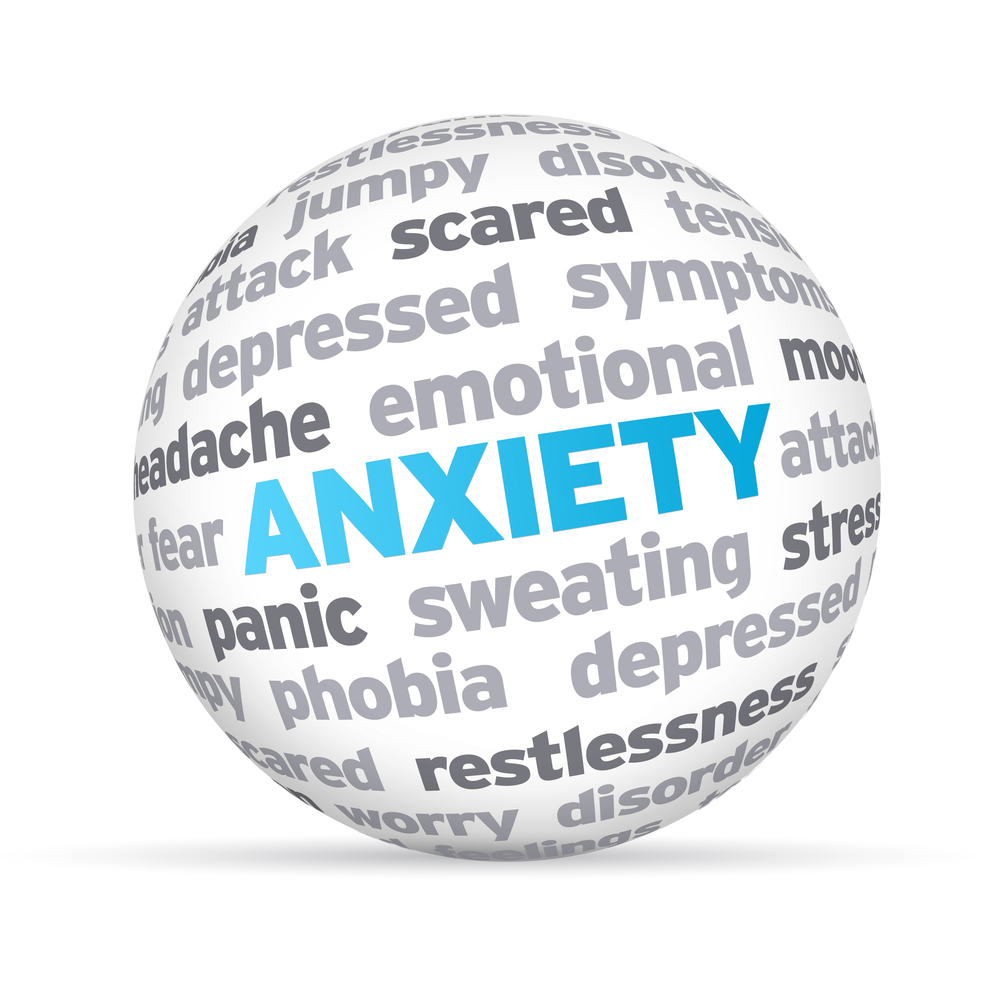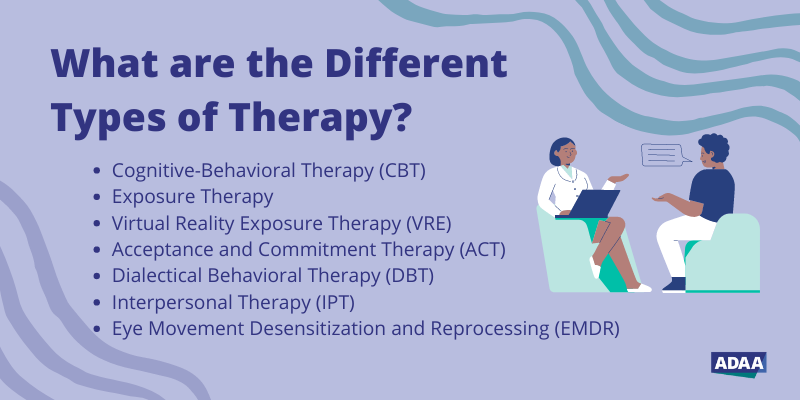Scientifically supported counselling for anxiety with compassionate guidance
Scientifically supported counselling for anxiety with compassionate guidance
Blog Article
Exploring Different Strategies in Counselling for Anxiety Problem for Long-term Modification
When tackling anxiety conditions, it's vital to discover a selection of therapy approaches. Each method provides special understandings and devices to aid you manage your symptoms efficiently. You might find that integrating techniques can yield the most effective results. Comprehending the subtleties of these strategies is crucial to fostering long-term adjustment. What if the ideal mix could launch a brand-new level of emotional well-being for you?
Understanding Anxiousness Disorders: A Short Summary
Anxiety problems, which impact millions of individuals worldwide, can substantially affect day-to-day live. You could experience overwhelming feelings of anxiety or fret that appear unmanageable. These feelings can bring about physical signs like a racing heart, sweating, or perhaps wooziness. Usual kinds of stress and anxiety disorders include generalised anxiety problem, panic attack, and social anxiety problem. Each has distinct indicators, but they all share a propensity to disrupt your regular and relationships.Understanding the source of your anxiety is crucial. It might come from genetics, brain chemistry, or life experiences. Identifying your triggers can assist you handle your reactions much better. It's essential to remember that you're not the only one in this struggle. Many individuals deal with comparable difficulties, and looking for help is a solid action towards feeling better. By learning more about stress and anxiety problems, you're already on the path to understanding and handling your problem better.
Cognitive-Behavioral Therapy: Testing Adverse Idea Patterns
In Cognitive-Behavioral Treatment, you'll start by determining the unfavorable idea causes that add to your stress and anxiety. Once you recognize these thoughts, you'll service changing them with even more favorable alternatives. With each other, you'll build efficient coping approaches to aid manage your stress and anxiety in daily scenarios.
Identifying Negative Thought Triggers

Identifying the details triggers behind your adverse ideas can be essential in managing stress and anxiety when you run into minutes of distress. Begin by taking note of circumstances that provoke feelings of worry or fear. Is it a crowded area, an upcoming deadline, or a discussion with specific people? Write down these circumstances in a journal. This will help you identify patterns in your thinking. Also, notification physical experiences that accompany your adverse ideas, like an auto racing heart or rigidity in your breast. By pinpointing these triggers, you gain insight right into what's sustaining your anxiety. Understanding these connections is the first step in challenging those thoughts and eventually gaining back control over your emotional feedbacks.
Replacing Thoughts With Positives
Challenging unfavorable thought patterns is an essential action in transforming your mindset and lowering stress and anxiety. You might often discover on your own trapped in cycles of insecurity or devastating reasoning. Rather of allowing these ideas dictate your sensations, practice replacing them with favorable affirmations or practical choices. When you believe, "I can not handle this," change it to, "I can manage challenges one action at a time." This easy change can significantly influence your emotion. Consistently identifying and countering these unfavorable ideas aids develop a healthier internal dialogue. Remember, it takes time and effort, but consistently practicing this technique can cause lasting adjustment, empowering you to deal with stress and anxiety with renewed confidence and durability.
Structure Coping Approaches Together
Replacing unfavorable thoughts is just the start of taking care of anxiety effectively. To create long-term change, you need to develop coping techniques that empower you. Cognitive-Behavioral Treatment (CBT) assists you determine and challenge those purposeless idea patterns. With each other, you and your therapist can explore just how these thoughts impact your sensations and behaviors.Start by creating useful techniques, like journaling or mindfulness workouts, that allow you to face stress and anxiety head-on. When you encounter your concerns gradually, you'll learn to react in different ways.

Mindfulness and Acceptance-Based Approaches: Cultivating Present-Moment Awareness
As you navigate the intricacies of anxiety, incorporating mindfulness and acceptance-based approaches can considerably enhance your capability to grow present-moment awareness. By concentrating on the right here and now, you'll find that you can observe your thoughts and feelings without judgment (Counseling services for anxiety). This practice assists you acknowledge your anxiousness without really feeling bewildered by it.Engaging in mindfulness exercises, such as deep breathing, body scans, or guided reflections, enables you to ground on your own in your existing experience. Acceptance-based strategies encourage you to accept your feelings instead of deal with against them. When you approve your sensations, they lose their power over you.Incorporating these methods right into your day-to-day routine can change exactly how you reply to stress and anxiety. You'll establish resilience and find out to browse difficult circumstances with better ease. Inevitably, growing present-moment understanding lays the foundation for enduring adjustment, encouraging you to lead an extra meeting life
Direct Exposure Treatment: Challenging Anxieties Progressively
Direct exposure treatment aids you challenge your anxieties in a steady means, making it much less frustrating. You'll discover methods to deal with anxiety-provoking circumstances detailed, while also building coping strategies to manage your responses. This strategy encourages you to take control and minimize stress and anxiety in time.
Progressive Exposure Techniques

When facing anxiety, progressively facing your fears can be an effective means to reclaim control. This method, referred to as steady direct exposure, includes slowly exposing on your own to the scenarios or objects that cause your stress and anxiety. Beginning with much less challenging situations and slowly work your way approximately more tough ones. If you're afraid of public speaking, you may start by speaking in front of a mirror, then proceed to sharing ideas with a good friend, and eventually deal with a tiny team. Each step assists desensitize you to the anxiety, building your confidence gradually. Bear in mind, it's vital to rate on your own and celebrate little victories as you move with this process, strengthening your capacity to manage anxiety successfully.
Building Coping Strategies
Building effective coping approaches is essential for handling anxiousness, especially as you face your concerns progressively - Counseling services for anxiety. One effective approach is direct exposure treatment, where you begin by encountering your concerns in a regulated way. Start with much less daunting circumstances and slowly work your method as much as more challenging scenarios. This gradual exposure aids desensitize you to stress and anxiety sets off, making them less overwhelming.Incorporate relaxation strategies, such as deep breathing or mindfulness, to relax your mind throughout direct exposure. Track your development, celebrating small victories along the way to boost your self-confidence. Bear in mind, it's all right to take your time; the objective isn't excellence however stable improvement. By developing these techniques, you'll empower yourself to browse anxiousness and welcome life a lot more completely
Psychodynamic Therapy: Uncovering Source of Anxiousness
Psychodynamic therapy explores the subconscious mind, disclosing the source of your stress and anxiety. By examining your ideas, feelings, and previous experiences, this method helps you reveal underlying disputes and unresolved concerns that may add to your present anxiety. You'll function with a therapist to explore youth experiences, relationships, and psychological patterns that shape your feedbacks today.As you obtain insight right into these deeper layers of your subconscious, you'll start to identify exactly how previous events affect your present actions. This understanding can cause catharsis, enabling you to refine emotions you may have suppressed.Through the restorative relationship, you can likewise determine protection systems that might have established with time, providing a clearer path to transform. Ultimately, psychodynamic therapy equips you with the devices to resolve your anxiousness at its core, promoting lasting change in your psychological health.
Integrative and All Natural Strategies: Integrating Techniques for Greater Efficiency
Integrating numerous restorative strategies can improve your trip toward managing anxiety better. By integrating aspects from cognitive-behavioral treatment, mindfulness practices, and all natural techniques, you can develop a personalized method that addresses your unique demands. You may use cognitive-behavioral strategies to challenge negative idea patterns while including mindfulness workouts to ground on your own in the present moment.Additionally, discovering all natural methods such as yoga or reflection can promote leisure and lower anxiety symptoms. This blend permits you to develop greater self-awareness and resilience.Experimenting with these varied techniques can assist you uncover what resonates most with you. Keep in mind, it has to do with locating a harmony that functions, instead of staying with a single approach. This integrative approach not just supplies prompt relief but likewise promotes long-term abilities for managing anxiety, encouraging you to recover control over your life.
The Duty of Assistance Systems: Building Resilience With Connection
While it might appear that managing anxiety is a solitary trip, having a solid support group can play a crucial function in your strength. Bordering yourself with compassionate good friends, family members, or assistance groups develops a risk-free room where you can freely share your experiences and feelings. You advise yourself that you're not alone in this struggle.These relationships provide inspiration and can give functional coping methods that have worked for others when you connect with others. It's likewise a possibility to obtain point of view; friends can help you see scenarios in a different way, reducing sensations of isolation.Moreover, psychological assistance fosters a feeling of belonging, which can greatly alleviate anxiety signs. By leaning on your support group, you can develop resilience and deal with challenges better. Bear in mind, reaching out for assistance is an indicator of strength, and it can make all the difference in your journey towards handling anxiousness.
Regularly Asked Questions
What Are the Usual Signs of Anxiety Disorders?
You might experience restlessness, exhaustion, problem focusing, irritability, muscle mass stress, and sleep disruptions. Physical signs and symptoms can include rapid heart beat, sweating, and shivering. Identifying these indications early can assist you seek ideal assistance and treatment.
For How Long Does Treatment Commonly Last for Anxiousness Conditions?
Therapy for stress and anxiety conditions generally lasts anywhere from a few weeks to a number of months. It truly depends upon your individual demands, progress, and the methods your therapist uses to aid you manage your anxiety effectively.
Can Medication Be Utilized Together With Treatment for Anxiety?
Yes, medicine can most definitely be used alongside treatment for anxiety. Integrating both methods typically enhances therapy efficiency, assisting you take care of signs while discovering underlying concerns through counseling (Counseling services for anxiety). Constantly consult your healthcare copyright for personalized advice
Exist Self-Help Approaches for Handling Anxiousness?
Yes, there are numerous self-help techniques for taking care of anxiousness. You can exercise mindfulness, take part in here routine exercise, keep a balanced diet regimen, establish a routine, and make use of deep breathing strategies to help in reducing stress and anxiety symptoms successfully.
How Do I Know if I Required Expert Help for Anxiety?

Report this page